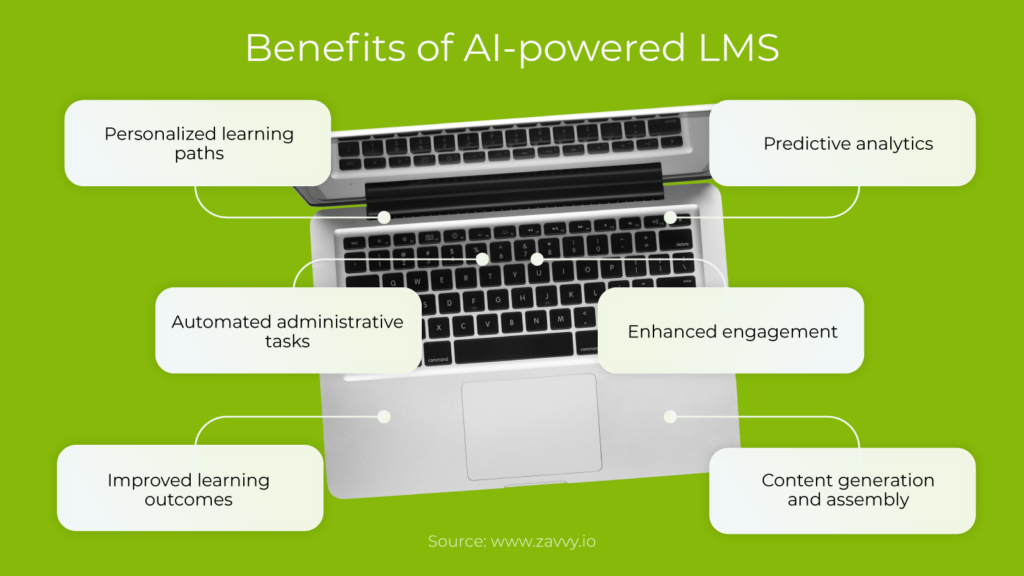
스킬 관리의 성공을 위한 필수 전략

At its core, 기술 관리 is the strategic approach organizations take to identify, analyze, develop, and deploy the skills their workforce possesses. It’s about understanding the capabilities within your team and aligning them with the organization’s goals. This process ensures that you have the right people with the right skills in the right roles at the right time.
Definition and understanding of skills management
To delve deeper, 기술 관리 can be defined as a comprehensive system that encompasses various aspects of the employee lifecycle, including:
- Skills inventory: This involves creating a detailed inventory of the skills and competencies present within the organization.
- Skills gap analysis: Identifying the discrepancy between the existing skills and the skills required to meet current and future business objectives.
- Skills development: Implementing targeted training and development programs to bridge the identified skills gaps.
- Skills deployment: Strategically allocating employees to roles and projects that best utilize their skills and expertise.
- Performance management: Aligning individual performance goals with organizational objectives and providing feedback to foster continuous improvement.
The evolution of skills management
From traditional methods to dynamic approaches
The days when mastering a singular skill set could carry one through an entire career are gone. Think back to stories from our grandparents, who often spoke of dedicating four decades to a single profession or company.
Yet, in our current era, marked by an unparalleled surge in information and swift technological evolution, leaning exclusively on age-old methods is much like opting for a typewriter in a world dominated by digital devices.
The rules of the professional playbook have been rewritten, necessitating a fresh and adaptive approach.
The impact of technology
Technology’s footprint is evident in virtually every aspect of our lives, weaving its intricate patterns into our daily routines, work methodologies, and even leisure activities. This pervasive integration has especially transformed the domain of 기술 관리.
As we navigate this digital age, we’re witnessing groundbreaking innovations like AI-driven educational platforms that provide personalized learning experiences tailored to individual needs.
Additionally, immersive virtual reality training modules transport learners into realistic, simulated environments, allowing for hands-on experience without real-world consequences.

These technological advancements are not merely supplementary; they are rapidly becoming the mainstay of professional growth.
The conventional classroom settings and traditional instructional methods, while still valuable, are increasingly being enhanced, and in some instances, supplanted by these avant-garde tools.
The bar for professional development and skill enhancement has been raised, prompting individuals and organizations alike to embrace these state-of-the-art resources to remain competitive and relevant in a constantly evolving landscape.
The importance of skills management
Addressing the rapidly changing work environment
The business landscape is transforming at an unprecedented pace, driven by technological advancements, globalization, and evolving economic landscapes. This constant state of flux necessitates a proactive approach to 기술 관리. Organizations and individuals alike must prioritize identifying, developing, and leveraging skills to thrive in this dynamic environment.
Failing to adapt to these shifts can lead to skills gaps, which occur when the skills present within a workforce don’t align with the skills required to perform effectively. These gaps can hinder productivity, stifle innovation, and impact overall organizational success.
Bridging the skills gap in various industries
The skills gap is a pervasive issue that affects a wide range of industries. For example, the rapid rise of automation and artificial intelligence has created a surge in demand for professionals skilled in data science, software development, and cybersecurity. Similarly, the healthcare sector faces a growing need for skilled nurses, physicians, and other healthcare professionals to meet the demands of an aging population.
Effectively bridging the skills gap requires a multi-faceted approach. Businesses need to invest in training and development programs that upskill their existing workforce and equip them with the competencies needed to excel in evolving roles. Furthermore, fostering a culture of continuous learning encourages employees to stay ahead of the curve and proactively seek out opportunities to expand their skill sets.
Core elements of effective skills management
Before we delve into the intricacies of skills management, let’s take a step back and distinguish between two terms that often cause confusion: skills 및 competencies. While they are interconnected, understanding the nuances of their differences is vital.
Differentiating between skills and competencies
Think of skills as the building blocks of your professional capabilities. They are specific, learnable abilities that can be developed through training, practice, and experience. For example, proficiency in a particular software program or the ability to analyze data sets are considered skills. These can often be demonstrated and measured objectively.
Competencies, on the other hand, represent a broader application of your skills and knowledge. They encompass your behaviors, attributes, and values that contribute to successful performance in a given role. They answer the question: How effectively can you use your skills? For instance, “problem-solving” is a competency that might require a combination of analytical skills, critical thinking, and decision-making abilities.
In essence, skills are the “what” you can do, while competencies reflect “how” effectively you use those skills to achieve desired outcomes.
Identifying key management skills: Technical, conceptual & human
Now, let’s shift our focus to management skills. These are a specialized set of skills essential for anyone in a leadership position. Effective management hinges on a blend of three core skill sets:
- Technical skills: These involve expertise in specific tools, techniques, or procedures related to a particular field. For a marketing manager, this could mean proficiency in digital marketing platforms, while for a software development manager, it might entail coding languages and software development methodologies.
- Conceptual skills: This set of skills enables managers to think strategically, see the bigger picture, and understand the interconnectedness of various parts of an organization. They are crucial for decision-making, problem-solving, and planning for the future.
- Human skills: Also known as interpersonal skills, these are all about effectively interacting with people. From communication and teamwork to motivation and conflict resolution, these skills are paramount for building strong relationships, fostering a positive work environment, and inspiring high performance within teams.
The ideal skill set for a manager will depend on various factors like industry, organizational size, and specific role requirements. However, a strong foundation in all three areas – technical, conceptual, and human – is essential for success.

Future-proofing: Predicting high-demand skills
The concept of “future-proofing” your skillset has become more crucial than ever before. As technology continues to advance at an unprecedented pace, many jobs are becoming automated, while new roles requiring entirely different skill sets are emerging.
Predicting high-demand skills involves staying ahead of the curve by identifying emerging trends and anticipating the skills that will be in high demand in the future. This might involve:
- Closely following industry publications and reports: Keeping an eye on labor market analyses, technology forecasts, and industry-specific research papers can provide insights into the skills gaps that are anticipated in the near future.
- Engaging in continuous learning and development: Proactively seeking out opportunities to upskill or reskill through online courses, workshops, certifications, or even pursuing advanced degrees in relevant fields can keep you competitive.
- Networking and attending industry events: Connecting with other professionals, attending conferences, and participating in industry webinars can provide valuable insights into emerging trends and skill demands.
By staying curious, adaptable, and continuously investing in their professional development, individuals can equip themselves with the skills they need to thrive in the ever-changing landscape of work.
Benefits of implementing strong skills management practices
Employing robust skills management practices is paramount to achieving success in today’s rapidly changing business landscape. Let’s explore the profound impact that effective skills management can have on both organizations and individuals alike.
For organizations: Increased productivity, efficient recruitment, and leadership development
Organizations implementing robust skills management practices frequently experience a significant boost in increased productivity. By meticulously identifying and analyzing the skills within their workforce, organizations can strategically align individuals with roles that perfectly match their expertise. This strategic alignment empowers employees to perform at their best, ultimately driving higher levels of efficiency and output.
Moreover, effective skills management plays a pivotal role in streamlining the recruitment process. By possessing a comprehensive understanding of the skills required for specific roles, organizations can significantly reduce time-to-hire by efficiently identifying and evaluating candidates who possess the necessary competencies. This streamlined approach not only saves valuable time and resources but also increases the likelihood of finding the perfect fit for the organization.
Furthermore, organizations can cultivate leadership development by fostering a culture that values continuous learning and development. By providing employees with targeted training and development opportunities, organizations can nurture future leaders equipped with the skills necessary to navigate complexities, inspire teams, and drive organizational growth.
For individuals: Enhanced motivation, clarity in career path, and opportunities for growth
From an individual perspective, effective skills management also unlocks a myriad of benefits. When employees have a clear understanding of their strengths and areas for improvement, they are better equipped to take ownership of their professional development. This newfound clarity often leads to enhanced motivation as individuals can readily identify skills gaps and proactively seek opportunities to expand their skill sets.
Furthermore, skills management provides individuals with unparalleled clarity in their career path. By understanding the skills and competencies valued within their organization or industry, individuals can make informed decisions regarding their career trajectory. Armed with this knowledge, they can confidently pursue professional development opportunities that align with their long-term aspirations. Lastly, effective skills management empowers individuals with opportunities for growth. As individuals actively develop and refine their skills, they become highly sought-after assets within the job market. This enhanced marketability opens doors to new and exciting opportunities, fostering a sense of career progression and fulfillment.

Challenges in skills management and how to overcome them
스킬 관리 is a crucial aspect of any successful organization. However, it also comes with its fair share of challenges. Let’s explore some of the most common obstacles and discuss effective strategies to overcome them.
Resistance to change within organizations
One of the biggest hurdles in skills management is encountering resistance to change from within the organization itself. Many employees may be hesitant to adopt new technologies or processes, especially if they’ve been with the company for a long time and are comfortable with the existing ways of doing things. Overcoming this resistance requires a multi-faceted approach:
- Communicate transparently: Start by clearly communicating the reasons behind the need for change. Explain how acquiring new skills will not only benefit the company but also enhance their career prospects and job security.
- Provide comprehensive training: Offering comprehensive training programs is essential to equip employees with the necessary skills and knowledge. This should involve a blend of online courses, workshops, and hands-on experience to cater to different learning styles.
- Encourage a culture of learning: Foster a positive learning environment where employees feel encouraged and supported to embrace new challenges. Recognize and reward those who actively participate in skills development initiatives.
Maintaining up-to-date skill sets in rapidly evolving industries
Staying ahead of the curve requires a commitment to continuous learning. However, keeping employees’ skill sets aligned with the latest advancements can be a daunting task. Here’s how to tackle this challenge:
- Conduct regular skills gap analyses: Conduct periodic skills gap analyses to identify any discrepancies between the existing skills within the workforce and those needed to meet future demands. This assessment will provide valuable insights for developing targeted training programs.
- Leverage microlearning platforms: Embrace microlearning platforms that offer bite-sized learning modules. These platforms deliver information in short bursts, making it easier for employees to acquire new knowledge and skills amidst their busy schedules.
- Partner with educational institutions: Establish partnerships with universities, colleges, and vocational schools to create a pipeline of skilled talent. This collaboration can involve offering internships, apprenticeships, or even customized training courses tailored to the company’s specific requirements.
Final word
Mastering the art of skills management has become a critical component in today’s competitive professional landscape.
Excelling in this area isn’t merely a feather in one’s cap—it’s a fundamental necessity. Given the unpredictable nature of our global environment, adaptability isn’t just a desirable trait; it’s the bedrock of sustained success.
As such, the manner in which we manage, hone, and continually adapt our skills through strategic skills management practices directly influences our trajectory in the professional world.
The methodologies conceptual skills and strategies underscored earlier present a comprehensive framework for skills management. They equip you with the necessary tools to not only respond to changes but to anticipate and lead them, ensuring you remain at the forefront of your field.
With this knowledge at your disposal and a clear focus on effective skills management, you are well-prepared to navigate the ever-evolving terrains of the contemporary professional world, meeting each challenge with determination and agility.
Discover how DevSkiller can enhance your skills management software initiatives.
데모 예약하기 제품 전문가와 상담하거나 이 짧은 동영상을 시청하세요. 5분 데모 동영상 를 클릭해 자세히 알아보세요.
자주 묻는 질문
- How often should skills be assessed?
Ideally, skills should be assessed regularly, ranging from once a quarter to once a year, depending on the industry and role.
- Are online courses effective for skills development?
Absolutely! Online courses offer flexibility and a plethora of options, making them an excellent resource for continuous learning.
- How do companies cultivate a feedback culture?
It starts from the top. Leaders must lead by example, actively seeking feedback, and creating a safe environment for open communication.
- Why is there a resistance to change?
Change often brings uncertainty. Humans, by nature, seek comfort and predictability, which is why there’s often resistance to new methods or ideas.
- Can soft skills be taught and developed?
Yes, while some individuals might have a natural inclination, soft skills can be developed through training, mentorship, and practice.




